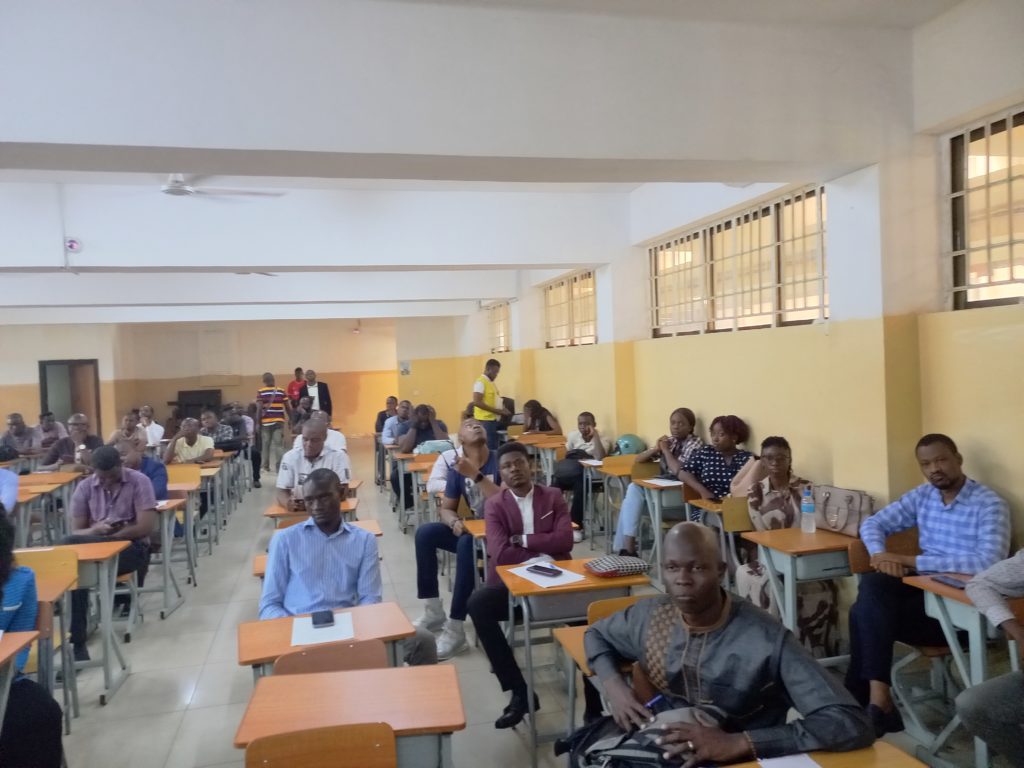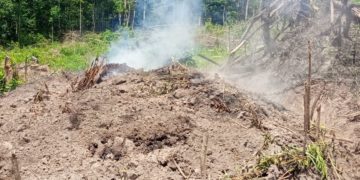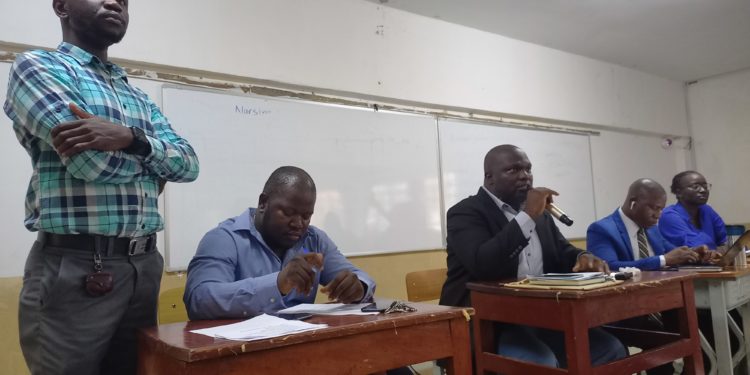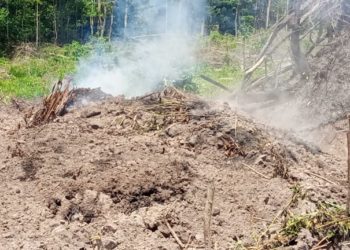Medical doctors in Sierra Leone have threatened to withhold their services if three months allowances “abruptly deducted” from their salaries without notice aren’t restored by the end of July.
The aggrieved doctors, under the umbrella Sierra Leone Medical and Dental Association (SLMDA), said the authorities began deducting their allowances in April this year without informing them. They are also unhappy about non-payment of fuel allowances to medical doctors, in line with provisions of the civil service code.
Leaders of the association spoke at a press conference on Thursday, where they outlined a number of other concerns affecting their their lives.
“For far too long, we believe we’ve been robbed of things which rightfully belong to us. Today, we are here to send a strong message to authorities involved that things can’t continue as usual,” said Dr Peter Mac-Jajua, spokesperson for the association.
He told journalists in the conference hall of the nursing department of the College of Medicine and Allied Health Sciences at Connaught Hospital that they were ready to go to any length to ensure that they get what they deserve “without any compromise.”
The SLMDA represents medical doctors and dentists nationwide, numbering between 400 and 450, according to the association.
Dr Idriss Tejan, its president, said all of these men and women are ready to down their tools if their concerns are ignored by the authorities.
The time frame given to the government, noted Tejan, represents a “generous” act as it adds some days to the 21-day notice usually required before a strike action.
The Ministry of Health and Sanitation (MoHS) didn’t respond to a request for comment. But the doctors said they have been told by the authorities that the sliced allowances were instituted as part of the incentives for the response to the Covid-19 pandemic, which no longer holds.
At the height of the pandemic in 2020, the government introduced a series of incentives as encouragement to medical workers risking their lives to help the sick.
According to the doctors’ association, the deductions amount to between 20 and 40 percent. They said all they want is for the authorities to restore it and call them for talks on the way forward. In addition, they want all deducted monies paid as part of the July salary.
“We as an association are not going to accept anything that falls short of this,” said Dr Tejan.

The Sierra Leone government lists health care as one of its top priorities. But medical practitioners and health care campaigners say successive governments have failed to march words with action in terms of investment in the sector.
Consequently, the sector has been marred by inefficiency, largely due to corruption and maladministration, which has greatly impacted service delivery. There have been reports of people dying due to lack of lifesaving services like oxygen or power cuts. And recurrent shortage of basic medication in health facilities is a commonplace.
In April last year, members of the junior doctors association staged an indefinite strike action over the alleged assault on one of their members by a government official over poor working environment.
The official reportedly assault Dr Catherine Jackson-Cole in an effort to prevent her from filming a scene as cleaners at the country’s largest referral hospital – Connaught – protested over unpaid salaries. The cleaners had been on strike for more than a week, due to nearly a year long unpaid salaries, which had left the facility looking like a dumpsite.
The association said at the time that it believed that the alleged actions of the official may have been influenced by the doctor’s action on social media, exposing unhygienic conditions at the hospital.
That incident followed a series of social and mainstream media reports exposing scenes at both Connaught and PCMH – the largest maternity hospital in the country – which revealed lack of basic water, hygiene and sanitation facilities.
The poor working condition of staff worsens the situation in the health sector, with demotivated nurses reportedly making illegal monetary demands from patients.
The whole situation has impacted the government’s partial health insurance scheme targeting the three most vulnerable category of the population – pregnant women, lactating mothers and children under fives years.
But doctors say they are the most neglected among the lot.
The minimum monthly salary for a doctor in Sierra Leone is Le6, 700 (US$500), making them one of the least paid doctors in Africa. The doctors association say the last time their salary was reviewed upwards was in 2019.
Dr Tejan said they planned to demand for salary increase in 2020 but they abandoned the idea due to the health emergency occasioned by the COVID-19 pandemic.
Besides their “non-negotiable” demand for the restoration of their allowances, they also presented a list of demands contained in a position paper they say resulted from their mid year congress last month, where issues affecting their work were discussed. These concerns include a call for review of the Health Service Commission, a statutory body mandated to manage welfare issues of medical practitioners. They also want the scheme of service for medical doctors reviewed, and for them to be provided housing and medical allowances, among other welfare issues.
The government has 90 days to respond to the demands in the position paper, they said.
“The welfare of medical doctors in this country has not been given the due attention it deserves,” stressed Dr Isaac O. Smalle, Vice President of the association, who warned that achieving the goal of universal health coverage largely hinges on meeting the welfare of medical practitioners.




















